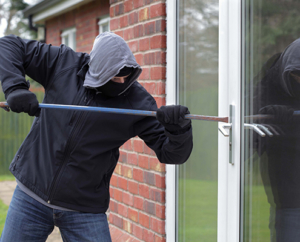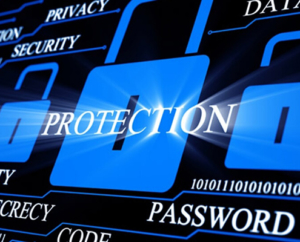Don’t Overlook Basement Security
If you are like most of us, you probably don’t think much about the security of your basement. However, you might want to start doing that. Why? Because burglars love to get into homes by crawling into the basement. They know that most people don’t put a lot of security there, so it gives them easy access. Here are some tips to ensure your basement is locked up tight: 
- If you have a door leading to the basement, make sure there is a good lock on it. Also, get a good, solid door. If the door is hollow, it’s very easy to kick in. Try to install the door so that it opens outwards. This way, it’s very difficult to kick in.
- Speaking of kicking in, if your door opens inward as most do, you need to reinforce that door and the door frame. Check out the Door Devil door reinforcement kit. It makes kicking in a door extremely difficult.
- Make sure all windows to the basement are visible from the outside. Windows hidden by shrubbery are perfect windows for burglars to get into since you can’t see them. A dark night paired with dark clothing with the covering of a shrub makes a burglar almost invisible.
- Speaking of the windows, you should also consider placing bars across basement windows. There are different types of bars on the market, and some are quite beautiful. So, you can improve the look of your home while also securing it.
- If bars aren’t your thing, you can also install security film onto the windows. This way, if a burglar tries to break the window, the glass will remain in place. You can install this film yourself quite easily.
- If you have a security system or motion sensors, which you should, make sure that the basement windows and doors are covered by them. Make sure that your basement windows are also monitored for glass breaking, too. Also, consider putting a sticker on those windows to let burglars know that your home has a security system in place.
- Secure your home from the inside by keeping things like chairs or ladders away from windows. Even if a burglar gets through the glass, they might think twice about jumping several feet down onto the basement floor.
- Keep valuables out of site. Don’t showcase all of your belongings to just anyone who looks in the window. Burglars often target homes when they can see the valuables inside. If they can’t see anything of value, it’s often not worth the risk. So, put valuables away or move them to an area of the basement where they can’t be seen. Also, consider putting up curtains or frosted glass sheets so burglars can’t see inside.
- If your basement is the equivalent of a man cave/sports bar equipped with neon lights, know you will be a target. So do everything above.
These are just a few tips to help keep your basement, and ultimately, your home, as safe as possible by simply utilizing the practices above, you can greatly decrease the chances that a burglar could get into your home through the basement.
Robert Siciliano is a home and personal security expert to DoorDevil.com discussing Anti-Kick door reinforcement on YouTube. Disclosures.


 According to surveys, people understand that they should use unique passwords, and more than half of people get stressed out due to passwords. Furthermore, about 2/3rds of people said that they had forgotten a password or that a password issue had cause problems at work.
According to surveys, people understand that they should use unique passwords, and more than half of people get stressed out due to passwords. Furthermore, about 2/3rds of people said that they had forgotten a password or that a password issue had cause problems at work.
























